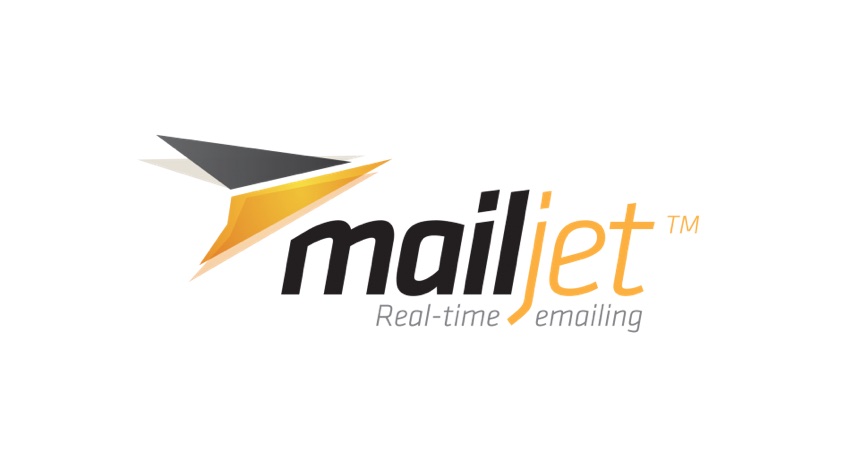In the dynamic world of digital marketing, email continues to be a cornerstone of communication and engagement. With 2024 upon us, businesses are more than ever in need of effective email marketing tools to reach their audience. Two standout options in this arena are Benchmark Email and Mailjet. But which one is the best for your needs this year?
In this deep dive, we’ll explore the nuances of Benchmark Email and Mailjet, comparing their features, usability, pricing, and more. Whether you’re a small business owner, a marketing professional, or simply curious about email marketing tools, this article will give you a clear understanding of what these platforms offer, helping you make an informed decision.
Let’s embark on this journey of discovery, unraveling the capabilities and quirks of Benchmark Email and Mailjet.
| Benchmark Email | Mailjet |
|---|---|
 |  |
| G2 Score – 4.3 out of 5 stars | G2 Score – 4.0 out of 5 stars |
| TrustRadius Score – 6.5 out of 10 | TrustRadius Score – 7.9 out of 10 |
Ease of Use
When it comes to choosing an email marketing tool, ease of use is a critical factor, especially for those who are not tech-savvy or are managing a small team with limited resources. Both Benchmark Email and Mailjet promise user-friendly interfaces, but how do they really stack up?
Benchmark Email: User-Friendly for Beginners
Benchmark Email has long been praised for its straightforward and intuitive interface. From the moment you log in, you’re greeted with a clean dashboard that clearly lays out all the options. Whether you’re crafting an email campaign, setting up an autoresponder, or analyzing the results of your latest send-out, Benchmark Email makes it effortless.
One of the most notable features is its drag-and-drop email builder. Even if you’ve never designed an email before, you’ll find it surprisingly easy to create visually appealing emails. The tool provides a variety of templates that cater to different industries and occasions, all of which are easily customizable. You can add your images, tweak the layout, and modify the text without any HTML knowledge.
But it’s not just the email builder that shines. Benchmark Email also simplifies list management. Uploading your contacts, segmenting your audience, and managing subscriptions can be done in just a few clicks. This ease of use extends to its automation features. Setting up automated email sequences, such as welcome emails or follow-ups, is a breeze, making it a great tool for businesses looking to automate their email communication without getting bogged down in complexity.
Mailjet: Power Meets Simplicity
Mailjet, on the other hand, takes a slightly different approach. It offers a balance between power and simplicity, aiming to cater to both beginners and more advanced users. Its interface is clean and modern, with a bit more emphasis on advanced features compared to Benchmark Email.
The email editor in Mailjet is robust, allowing for a high degree of customization. It offers a drag-and-drop builder similar to Benchmark Email but with added capabilities for those who want more control over their designs. You have the option to dive into the HTML and CSS if you wish, making it a suitable choice for teams that have access to technical resources.
List management in Mailjet is also comprehensive. It allows for detailed segmentation and dynamic list management, which is particularly useful for larger businesses or those with more complex email marketing requirements. The platform’s automation features are equally impressive, providing users with the tools to create sophisticated email sequences based on user behavior and engagement metrics.
Deliverability and Performance
Beyond ease of use, the deliverability and performance of your emails are crucial. After all, the most beautifully crafted email is pointless if it doesn’t reach the inbox. Both Benchmark Email and Mailjet have reputations to uphold in this regard, but how do they actually perform?
Benchmark Email: Reliable and Consistent
Benchmark Email has a strong track record when it comes to deliverability. They have established good relationships with major Internet Service Providers (ISPs) and email services, ensuring their users’ emails have high deliverability rates. This means your emails are less likely to end up in the spam folder and more likely to reach your intended audience.
Another area where Benchmark Email excels is in its performance analytics. The platform offers detailed reports that give you insights into how your emails are performing. You can track open rates, click-through rates, and even see where in the world your emails are being opened. This data is invaluable in helping you refine your email strategies and ensure your content resonates with your audience.
The platform also offers tools to help improve your deliverability. For instance, it provides suggestions for optimizing your email content and subject lines to avoid spam filters. Additionally, Benchmark Email regularly updates its users on best practices for email marketing, keeping you informed about the latest trends and techniques.
Mailjet: Advanced Deliverability Features
Mailjet takes deliverability seriously, offering advanced features to help ensure your emails land in the inbox. Their sophisticated algorithms monitor your email performance and give you suggestions for improvement. This proactive approach is a significant asset, especially for businesses that rely heavily on email communication.
One standout feature of Mailjet is its A/B testing capability. You can test different versions of your email to see which performs better in terms of open rates and click-throughs. This experimentation can lead to significant improvements in your email performance over time.
Mailjet also provides real-time analytics, giving you a snapshot of how your emails are performing as soon as they’re sent. This immediate feedback can be incredibly useful for time-sensitive campaigns or for businesses that need to be agile in their marketing efforts.
Both Benchmark Email and Mailjet offer strong deliverability and performance metrics, but they approach it in slightly different ways. Benchmark Email is all about ease and simplicity, making it easier for less technical users to achieve good results. Mailjet, with its more advanced features, caters to users who want to dive deeper into the data and optimize their email campaigns to the fullest.
Customization and Integration
In a world where personalization is key to engaging customers, the ability to customize your emails and integrate with other tools is vital. Let’s see how Benchmark Email and Mailjet stack up in this department.
Benchmark Email: Tailoring Your Message
Benchmark Email shines in its customization capabilities. Its email editor is not only easy to use but also offers a wide range of customization options. You can change layouts, colors, fonts, and more to match your brand’s identity. Moreover, the platform allows you to personalize your emails with subscriber data, such as names or specific interests, which can significantly increase engagement rates.
However, where Benchmark Email truly stands out is in its integrations. The platform integrates seamlessly with a host of other tools and services, including popular CRM systems, e-commerce platforms, and social media networks. This integration capability means you can easily sync customer data across different platforms, enabling more targeted and effective email campaigns.
Mailjet: Advanced Personalization and Integration
Mailjet takes customization a step further. It not only offers the usual customization features but also allows for more advanced personalization. You can use dynamic content that changes based on the recipient’s behavior or preferences, making each email feel tailor-made for the individual.
In terms of integrations, Mailjet is equally impressive. It boasts a wide array of integrations with CRMs, e-commerce platforms, and other essential business tools. Additionally, Mailjet’s API is robust and well-documented, making it an excellent choice for businesses that need custom integrations or have specific technical requirements.
Both platforms offer excellent customization and integration options, but the choice between them may depend on your specific needs. Benchmark Email is great for straightforward, effective personalization and has a wide range of easy-to-use integrations. Mailjet, meanwhile, is ideal for businesses that require more advanced personalization and custom integration capabilities.

Related: Check out our free SEO suite

Pricing and Plans
When it comes to pricing, both Benchmark Email and Mailjet offer various plans to suit different needs and budgets. Understanding their pricing structures is key to determining which tool offers the best value for your specific situation.
| Benchmark Email | Free Plan: Offers basic email marketing features with a subscriber limit and Benchmark branding. Pro Plan: Pricing starts at $13/month for 500 subscribers and includes advanced features like automation, A/B testing, and targeted emailing. The price increases based on the number of subscribers. |
| Mailjet | Free Plan: Includes up to 6,000 emails per month (with a daily limit of 200) and unlimited contacts. Basic features like email creation and sending are included. Essential Plan: Starting at around $15/month for 15,000 emails per month. This plan removes the daily sending limit and includes online customer support, no Mailjet logo, and sub-accounts. Premium Plan: Starting at around $25/month for 15,000 emails per month. Includes additional features like segmentation, A/B testing, marketing automation, and multi-user collaboration. Custom Enterprise Solutions: Offers custom volume of emails with advanced features and dedicated support. Pricing is custom and based on specific requirements. |
Benchmark Email: Flexible and Affordable
Benchmark Email is known for its flexible and affordable pricing plans. The platform offers a free plan, which is great for small businesses or startups just beginning their email marketing journey. As your needs grow, you can upgrade to one of their paid plans, which are priced based on the number of subscribers you have. This scalability makes it a great option for growing businesses.
The paid plans include more advanced features like automation, A/B testing, and access to more detailed reporting. The pricing is transparent, and there are no hidden costs, which is a big plus for businesses keeping a close eye on their budgets.
Mailjet: Competitive Pricing with Scalability
Mailjet’s pricing structure is similarly competitive and is designed to scale with your business. They also offer a free plan, which is useful for testing out the platform’s features before committing to a paid subscription. The paid plans are based on the volume of emails sent, making it a good choice for businesses that have high email sending requirements.
Like Benchmark Email, Mailjet’s paid plans unlock more features, including advanced segmentation, A/B testing, and dedicated IP addresses for better deliverability. The pricing is straightforward, and they also offer custom plans for businesses with unique needs.
Customer Support and Resources
In the realm of email marketing, having access to reliable customer support and educational resources can be a game-changer, especially when you encounter technical issues or need strategic advice. Let’s evaluate the support systems of Benchmark Email and Mailjet.
Benchmark Email: Support with a Personal Touch
Benchmark Email is known for its exceptional customer service. Users have access to a range of support options, including email, live chat, and phone support. What sets them apart is the responsiveness and personal attention they provide. Their support team is often praised for being helpful, friendly, and knowledgeable, which can be a significant relief during stressful technical difficulties.
In addition to direct support, Benchmark Email offers a wealth of resources for users. Their website features a comprehensive knowledge base, how-to guides, video tutorials, and a blog full of email marketing tips and best practices. These resources are invaluable for both beginners and experienced marketers looking to enhance their skills.
Mailjet: Comprehensive Support and Learning
Mailjet also offers robust customer support, with email and live chat options available to users. While they may not offer phone support, their response times for email and chat are commendable. The support team is known for being efficient, professional, and capable of handling a wide range of queries.
Like Benchmark Email, Mailjet provides an extensive array of educational resources. Their blog is a treasure trove of information, covering everything from basic email marketing principles to advanced strategies. They also offer detailed guides, webinars, and a knowledge base to help users make the most of their platform.
Both Benchmark Email and Mailjet excel in providing comprehensive support and resources, making them both strong contenders in this area. The choice between them may come down to personal preference regarding the type of support you value most.
Analytics and Reporting
The ability to track and analyze the performance of your email campaigns is vital for refining your strategy and achieving better results. Let’s delve into how Benchmark Email and Mailjet handle analytics and reporting.
Benchmark Email: Intuitive and Detailed Analytics
Benchmark Email offers a detailed analytics dashboard that’s both intuitive and insightful. You can easily track the performance of your campaigns with metrics like open rates, click-through rates, bounces, and unsubscribes. Their reports are visually appealing and easy to understand, making it simple to derive actionable insights from your data.
One of the unique features of Benchmark Email is its email heatmap. This tool shows you where recipients are clicking within your emails, providing valuable insights into user engagement and behavior. This information can be instrumental in optimizing the design and content of your emails.
Mailjet: Advanced Reporting and Customization
Mailjet’s approach to analytics is slightly more advanced. While they offer all the standard metrics like open rates and click-throughs, they also provide more in-depth analysis. Their reporting tools allow for a high degree of customization, enabling you to dig deep into your data and segment your analytics in various ways.
Mailjet also offers real-time statistics, so you can immediately see how your emails are performing and make quick adjustments if needed. This feature is particularly useful for time-sensitive campaigns or for businesses that need to react quickly to market changes.
In the realm of analytics and reporting, both platforms offer strong capabilities. Benchmark Email is ideal for those who want straightforward, easy-to-understand analytics, while Mailjet caters to users who need more detailed, customizable reporting options.
Automation and Workflow Management
Automation is a critical feature for any email marketing tool, saving time and effort by automating repetitive tasks. Let’s see how Benchmark Email and Mailjet handle automation and workflow management.
Benchmark Email: Simplified Automation for Efficiency
Benchmark Email offers a user-friendly automation interface that makes setting up automated email sequences straightforward. You can create workflows based on specific triggers, such as when a user subscribes to a list, opens an email, or clicks on a link. This level of automation is excellent for nurturing leads, onboarding new customers, or re-engaging inactive subscribers.
The platform also allows for basic segmentation in automation workflows, letting you tailor your automated emails to different segments of your audience. This segmentation can significantly increase the relevance and effectiveness of your automated communications.
Mailjet: Advanced Automation and Segmentation
Mailjet provides more advanced automation capabilities compared to Benchmark Email. It allows for complex workflow creation with multiple triggers and conditions. This flexibility is particularly useful for businesses with sophisticated email marketing strategies that require nuanced automation sequences.
In addition to advanced triggers and conditions, Mailjet excels in segmentation within automation. You can create highly targeted automated emails based on detailed subscriber data, behavior, and engagement. This level of segmentation ensures that each subscriber receives the most relevant content, improving engagement and conversion rates.
Both Benchmark Email and Mailjet offer robust automation features, but the choice between them depends on your specific needs. Benchmark Email is ideal for those who need simple, effective automation capabilities, while Mailjet is better suited for businesses that require more complex and highly segmented automation workflows.
Security and Compliance
In the age of data breaches and stringent privacy regulations, the security and compliance of an email marketing tool are non-negotiable. Let’s compare how Benchmark Email and Mailjet fare in these areas.
Benchmark Email: Secure and Compliant
Benchmark Email takes security seriously. They implement standard security measures like SSL encryption to protect your data. In terms of compliance, they are diligent about adhering to global regulations such as GDPR, ensuring that your email marketing practices are compliant with the latest data protection laws.
Benchmark Email also provides features to help you maintain compliance in your email marketing. For example, they include easy-to-use tools for managing consent and opt-ins, essential for GDPR compliance.
Mailjet: High Standards of Security and Compliance
Mailjet also places a high emphasis on security and compliance. They offer robust security measures, including advanced encryption, to protect your data. Regarding compliance, they are not only GDPR compliant but also adhere to other international standards, making them a reliable choice for businesses operating in multiple regions.
Mailjet provides comprehensive features to help you stay compliant with various regulations. This includes tools for managing consent, customizing privacy settings, and ensuring that your email marketing aligns with legal requirements.
In terms of security and compliance, both Benchmark Email and Mailjet are strong contenders, offering the necessary features and assurances to keep your email marketing safe and compliant with global regulations.
Conclusion
In conclusion, both Benchmark Email and Mailjet present compelling options for email marketing in 2024, each with its strengths. Benchmark Email stands out for its user-friendly interface, making it ideal for beginners and small businesses looking for simplicity and effectiveness. Its customer support and straightforward analytics are also notable highlights. On the other hand, Mailjet offers more advanced features, particularly in automation, segmentation, and reporting, catering to businesses with more complex email marketing needs or those requiring deeper data insights.
Ultimately, the choice between Benchmark Email and Mailjet depends on your specific requirements. If ease of use and excellent customer support are your priorities, Benchmark Email is a great choice. However, if you need advanced features and customizable reporting, Mailjet is the way to go. Both platforms adhere to high standards of security and compliance, ensuring that your email marketing efforts are both effective and responsible. No matter which tool you choose, staying informed and adapting to the evolving digital landscape will always be key to email marketing success in 2024 and beyond.
Read Next:
- HubSpot Email Marketing vs ReachMail: The Best Email Marketing Tool for 2024
- HubSpot Email Marketing vs SalesHandy: The Best Email Marketing Tool for 2024
- HubSpot Email Marketing vs MailUp: The Best Email Marketing Tool for 2024
- HubSpot Email Marketing vs eSputnik: The Best Email Marketing Tool for 2024
- HubSpot Email Marketing vs Maropost: The Best Email Marketing Tool for 2024






















Comments are closed.